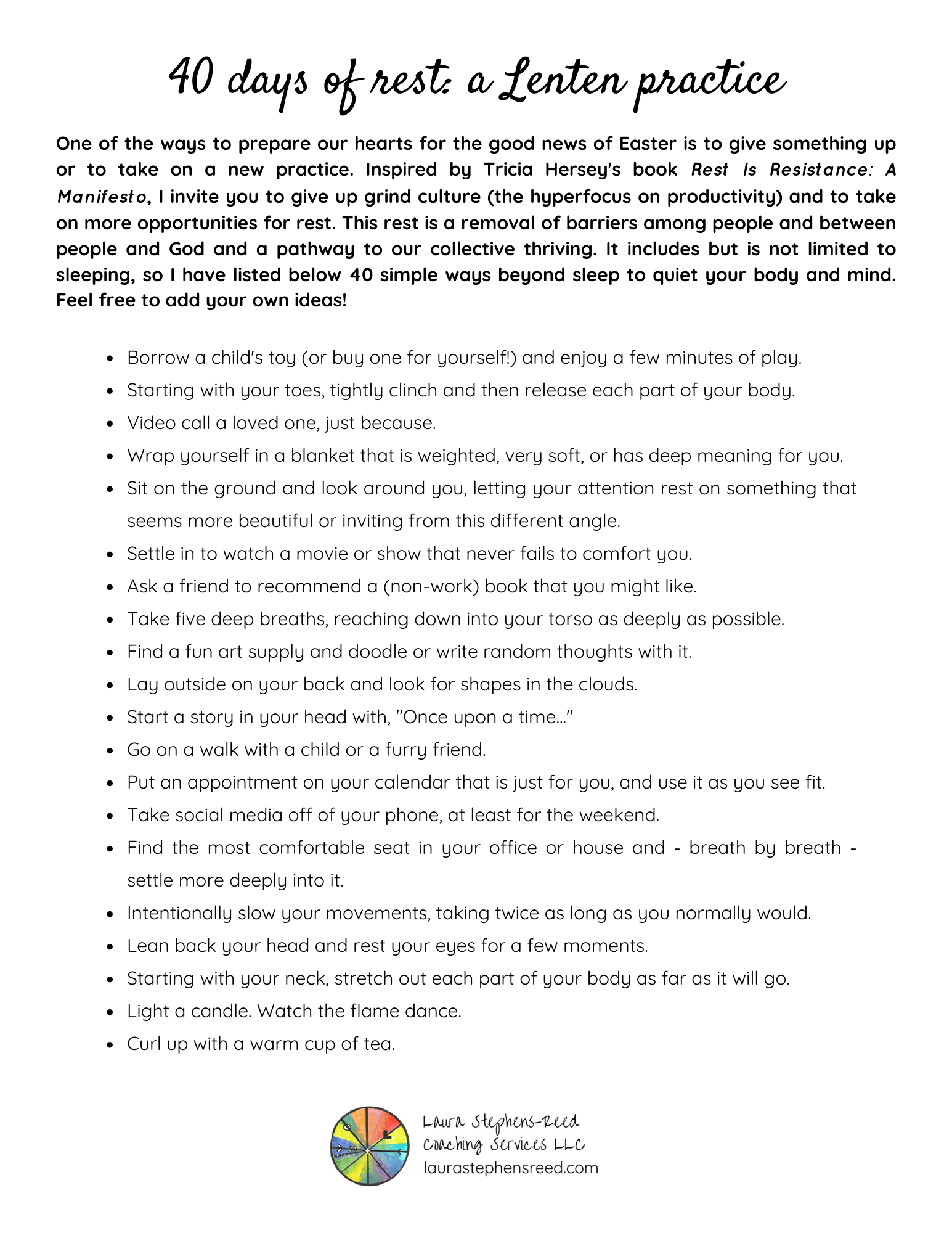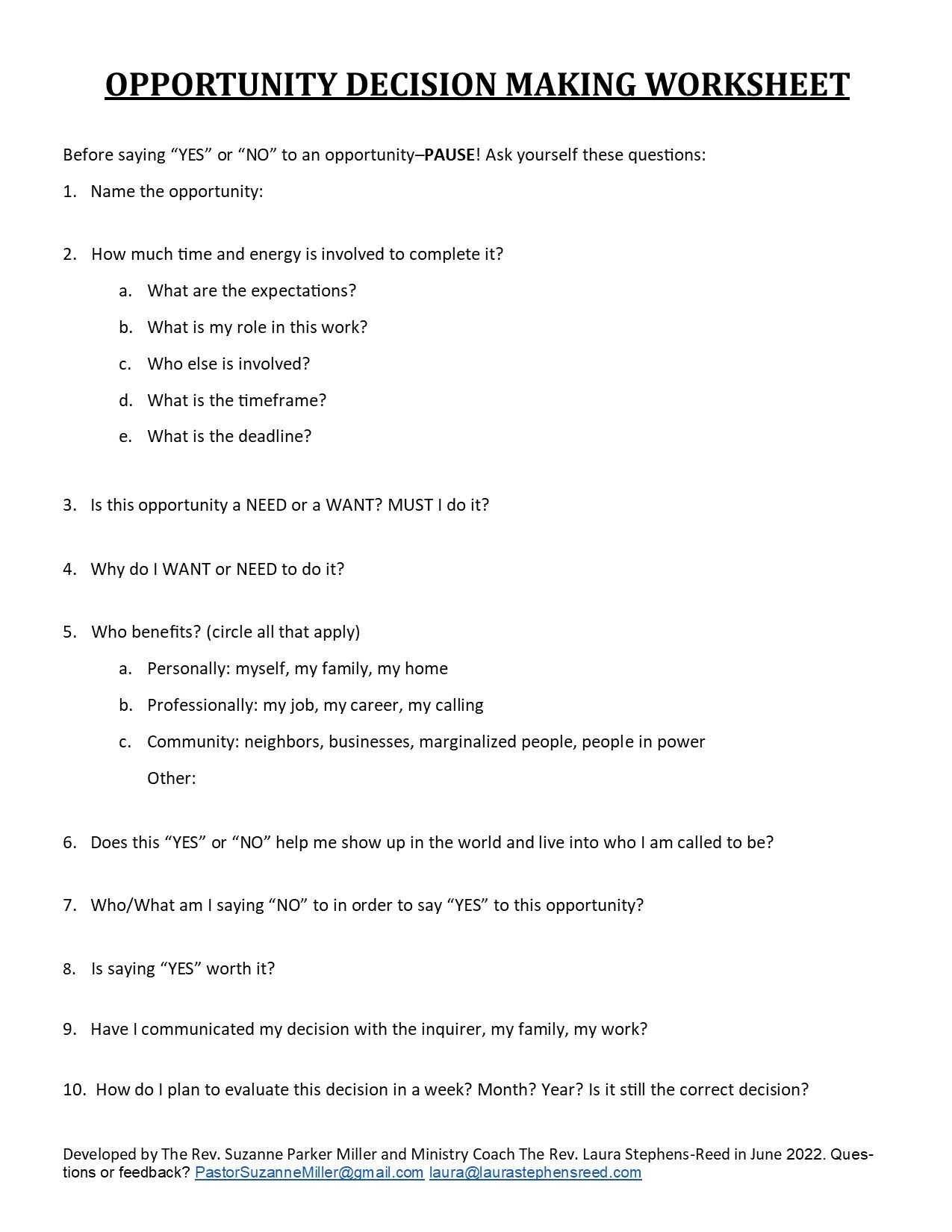What is your ministry all about?
Sacred Salt is my integration of faith and fitness. I create workouts and exercise programs that follow the liturgical church calendar, as opposed to the typical January to December calendar year. While I created these workouts with clergy, specifically congregational pastors, in mind, these workouts fit any lay leader or congregational volunteer who also finds themselves busier, even overwhelmed, during certain moments in the church year as they participate in the life and story of the church.
You've created a brand-new ministry, unlike anything else out there. What are the sources of your inspiration, courage, and support?
I initially created this practice just for myself when I was a solo pastor straight out of seminary as a way to maintain the exercise routine I enjoyed as a grad student with constant access to a campus fitness center. I knew spring and late fall/early winter would be busier times because of the extra services and time commitments of Lent and Advent, so I tried to schedule my workouts in a way that would complement, not compete with, the energy and focus I needed to pastor my congregation and do the work of ministry.
The name “Sacred Salt” came out of a sermon I preached on Matthew 5, specifically the 13th verse, where Jesus reminds his hearers that we “are the salt of the earth.” Jesus wasn’t telling the people to go off and figure out how to be salt. Rather, he was reminding them of what they already were: human beings created with two ways of producing salt – sweat and tears.
When Jesus said to be salt for the earth, I believe he meant to be so completely in relationship and community with others that you break a sweat and break into tears – whether they be joy, grief, rage, or laughter. In that way, the salt we’re made with becomes sacred when we share it with others, preserving the earth and the world around us.
In the fall of 2020, I was in the midst of two huge identity shifts: I’d resigned as a congregational pastor in mid-June of that year, and 8 weeks later gave birth via emergency c-section to my daughter. I felt unmoored, and the COVID-19 pandemic was just an added layer of ongoing bewilderment to the chaos I’d been feeling. All those identity questions I thought I’d thoroughly answered reared their heads again: Who am I, now? What do I want to do? How do I want to get there?
In the middle of all this, I received a phone call from a friend who knew I’d been going through some transitions and perhaps suspected some of what I was feeling. She offered me an opportunity to be the physical health and wellness coach for a year-long “Thriving in Ministry” program funded by the Lilly Foundation. The program would be completely virtual, and I would meet with cohorts of pastors as well as offer 1-1 sessions with individuals to talk about health, wellness, and exercise throughout all of 2021. And everything would be funded by the grant for the whole year. I was overjoyed. What had felt like disoriented wandering around a fog-draped maze became a little less foggy as more of the path appeared.
I’m forever thankful for that conversation, the leaders of the Thriving in Ministry program, and the participants who helped me grow, regain my confidence and clarity as a leader, and who trusted me to come alongside them as they made changes to become healthier, stronger, and happier. I’m especially thankful to the 4 pastors who also welcomed me into their lives as a trainer for prenatal and postpartum work, and who have named what I do now, “ministry.”
What obstacles have you faced to launching your ministry, and how are you overcoming or managing them?
As convenient as virtual training is, it is also a challenge since I am not in the same physical space as the people I train. When doing virtual personal training, all of us become our own tech and set crews to adjust lighting, camera angles, and finding the right position to be in to observe form while moving. It’s a mindset shift to find some levity in doing all that work, and it has also made me a better communicator and trainer since I’m relying on verbal feedback from my clients to determine how each movement feels. This is a benefit to my clients as well, since they need to be more in tune with their bodies in order to let me know if something is or isn’t working. When I create the Sacred Salt workout videos, I don’t have any feedback in real time, since folks can do them according to their schedules. That can make it difficult to offer enough variations to make movements challenging but doable, but as I get to know the people receiving these workouts, I ask for requests and do my best to offer what they’d like and enjoy doing.
For whom is your ministry really good news? Why?
Sacred Salt is really good news for folks who do their best to love Jesus, love the church, love themselves, and struggle to do all of that consistently without neglecting the latter in service of the two formers. These workouts come from a lived experience of pastoring full-time and wanting to find ways to care for myself physically, which helped keep me healthy mentally, emotionally, and vocationally. Connecting exercise to the story of faith helps the story come to life for me in wonderful and surprising ways. It’s my joy to help others discover that as well.
What's the best way for people to get more information about your ministry?
My site, www.maryapicellafitness.com, is set up as a pre/postnatal virtual personal training website, but in the Venn diagram of my two passions, pastors and pre/postnatal folks, I am trying my best to weave them together on one website. There is a “Sacred Salt” tab at the top of the menu bar for folks who’d like to learn more, explore the video library of full-length workouts and demonstrations, as well as the extra “workouts with the saints” for various feast days, and try them all for free for 7 days.
Thank you, Mary, for sharing about your ministry and inviting others into it!






















